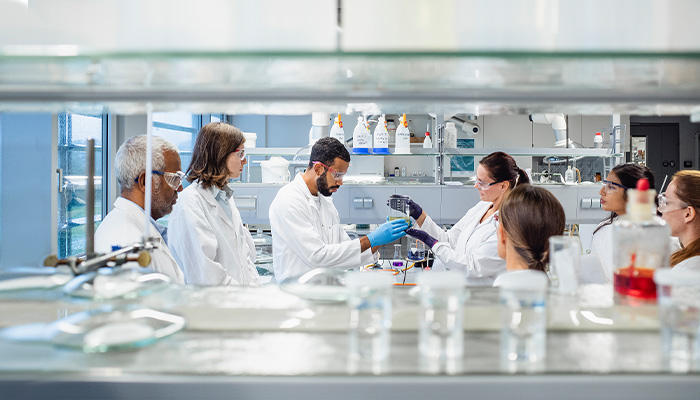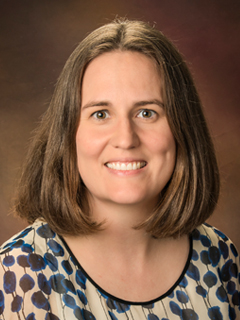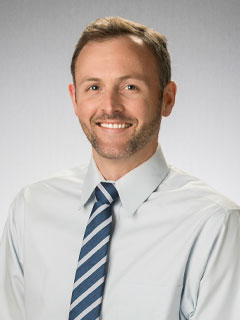HOW CAN WE HELP YOU? Call 1-800-TRY-CHOP
In This Section
Hartwell Foundation Funds Innovative Projects for Two CHOP Researchers

Two CHOP researchers (not pictured) received the Individual Biomedical Research Award from the Hartwell Foundation to fund early-stage, patient-centered projects.
Creativity is a central part of research projects funded by the Hartwell Foundation Individual Biomedical Research Award to support innovative, early-stage biomedical research. For Sarah Henrickson, MD, PhD, and Christopher Thom, MD, PhD, two of only 10 award recipients, this means thinking outside of the box to develop targeted treatments for patients with rare immune deficiencies who cannot find solutions in mass-marketed drugs. It also means adapting new technologies to improve platelet infusion practices for infants.
Ultimately, it means seeking the best possible care for their patients.
"A great aspect of this grant is that it allows us to run labs and ask questions in the pediatric space that are more creative than traditional funding mechanisms allow," Dr. Henrickson said.
Targeting Rare Immune Diseases
As a clinical immunologist specializing in rare immune deficiencies in the Division of Allergy and Immunology at CHOP, Dr. Henrickson has seen many patients with diseases who do not represent a substantial enough market for pharmaceutical companies to develop a novel drug to treat them intentionally. Targeted therapies that may work for one patient may not have the same successful results in another, given variable phenotypes in these rare disorders.
"If we can identify drugs that already exist to repurpose across groups of rare immune disorders, we can take care of our patients for whom there might not be another way to target their disease," Dr. Henrickson explained. "As exciting as it is to have one drug that targets the exact gene that is not working for you, that may not solve your problem because your body has done workarounds, and those workarounds might be the problem as well."
Dr. Henrickson's Hartwell-funded project, titled "Leveraging Shared Patterns of Immune Dysfunction to Target Primary Immune Regulatory Disorders," incorporates flow cytometry and transcriptional studies as tools to locate the shared pathways by which the immune system may function incorrectly across multiple rare disorders.
Using CRISPR/Cas9 gene editing to change healthy immune cells to match patient cells, Dr. Henrickson and her colleagues edit in the differences seen in their patients’ DNA. Then begins the process of trialing various strategies to optimally retune and correct the cells’ signaling to establish proper function.
"I love to bring together patient care with questions that I enjoy asking the lab," Dr. Henrickson said. "I think this grant facilitates us being able to use our training in the way that we are most excited."
Platelet Proteomics Informing New Practices
Dr. Thom, principal investigator in the Division of Neonatology at CHOP, is taking a closer look at current blood transfusion practices for babies that use donated adult platelets. Advancements in proteomics — the ways in which scientists can identify and quantify proteins in cells — have revealed differences between infant and adult blood platelets.
"The goals of my project are to understand the differences in proteins between adult and infant platelets, and to inform other neonatologists about why we should probably be more restrictive with the platelets we give babies," Dr. Thom said.
Platelet cells are unique in that they do not have a nucleus, and while relatively simple, they are packed full of proteins. Until recently, no studies have analyzed platelets on a protein level to understand how and why cell signaling may be different between infant and adult platelets.
Platelets are also becoming a limited resource, and many labs worldwide, including Dr. Thom's, are working to grow blood cells from stem cells in vitro to be used as cellular therapeutic products. The process of making blood cells from stem cells recapitulates fetal development, which means manufactured platelets could mimic fetal and neonatal platelets.
With the Hartwell grant, Dr. Thom anticipates his project, titled "Comprehensive Platelet Proteomics to Improve Neonatal Transfusion Practices," will confirm those findings to determine if new cellular therapeutic products may represent a better alternative for blood transfusions in babies.
"The rest of the world thinks about growing platelets in culture as trying to address the supply shortages," Dr. Thom said, "but what excites me about this project is the ability to adapt new technologies and new platforms for our specific patients."

